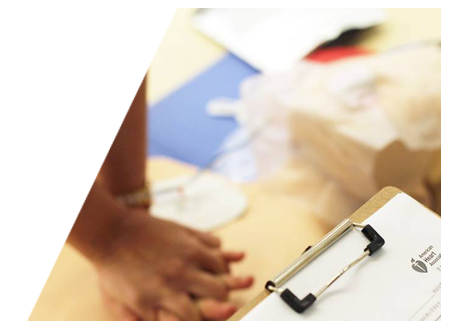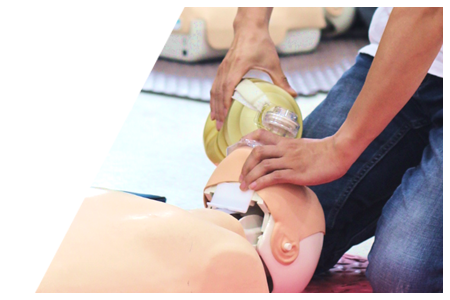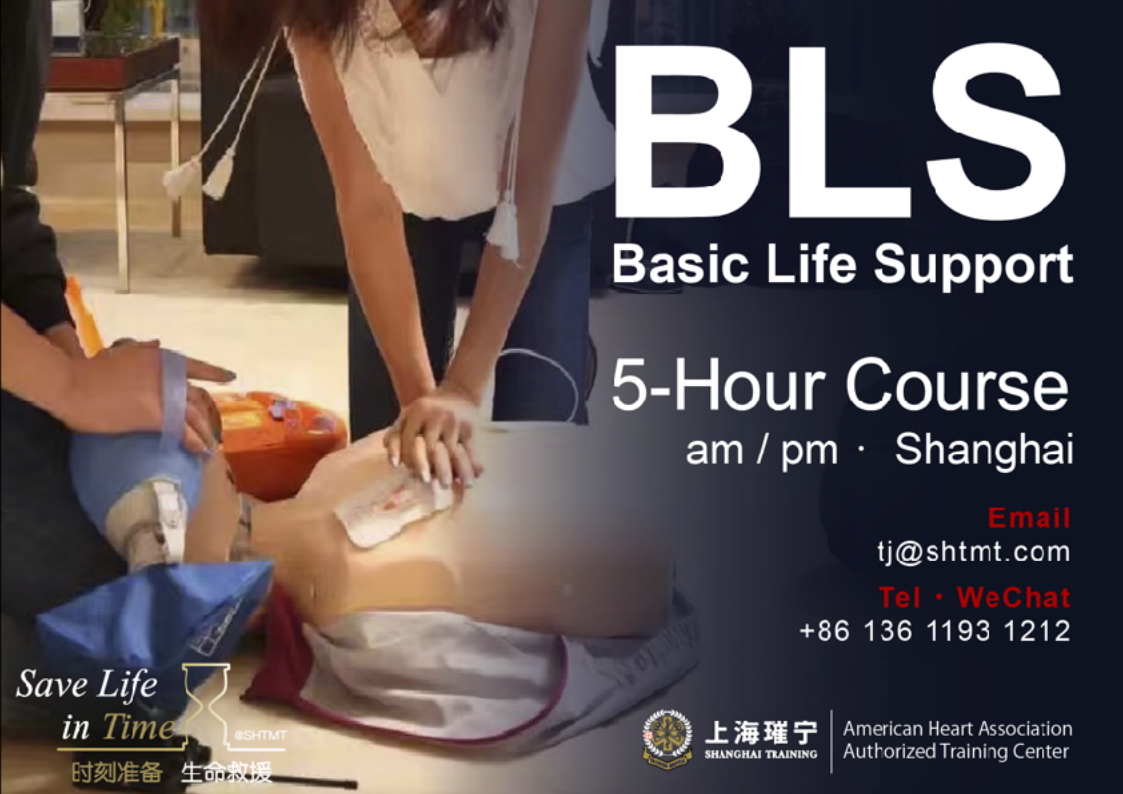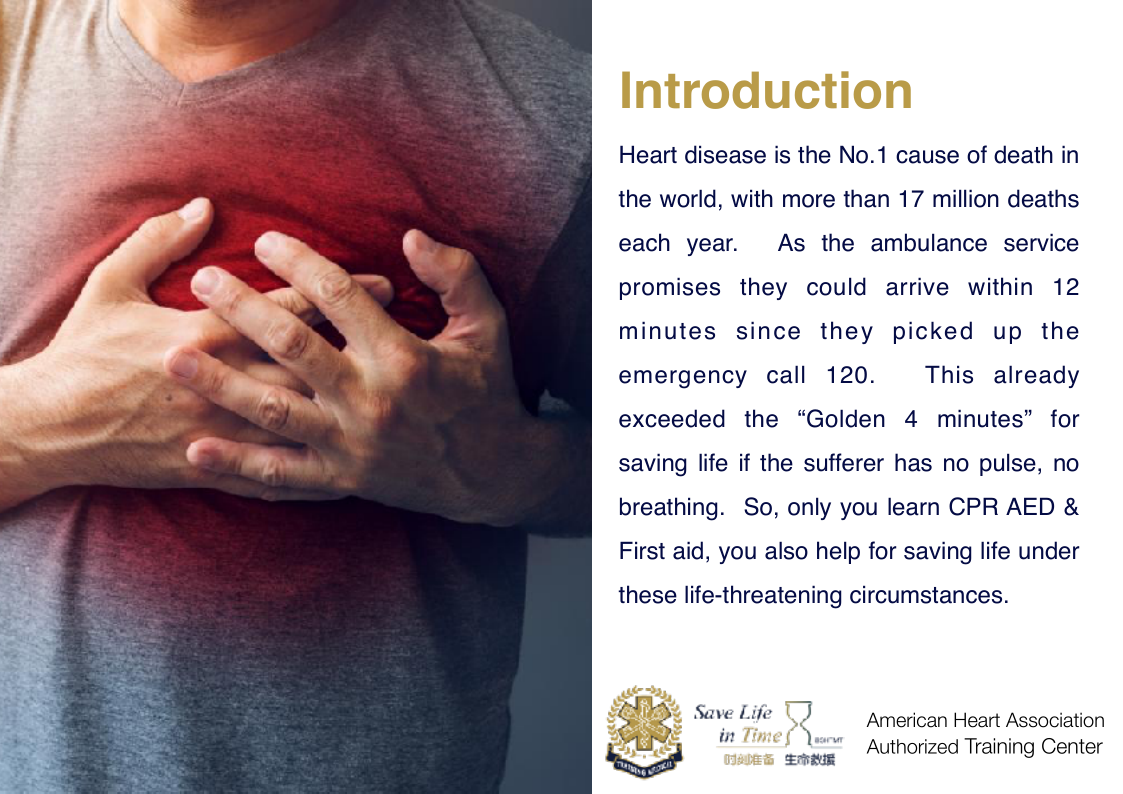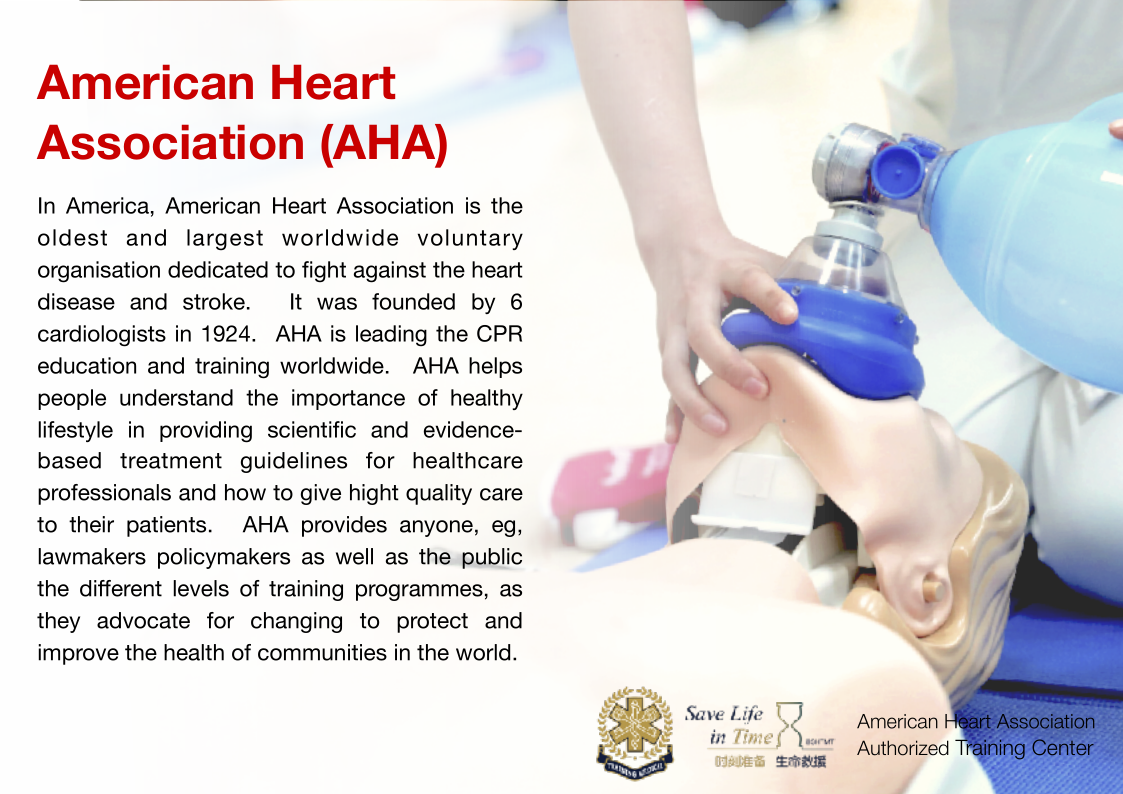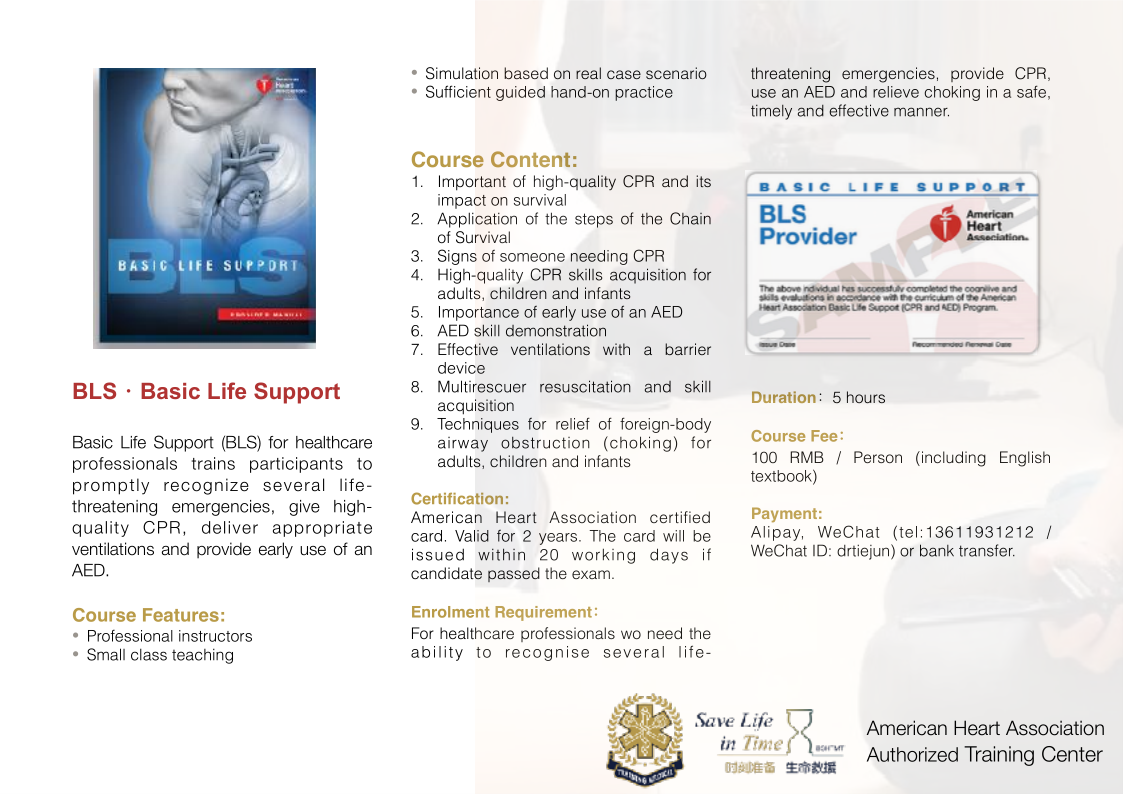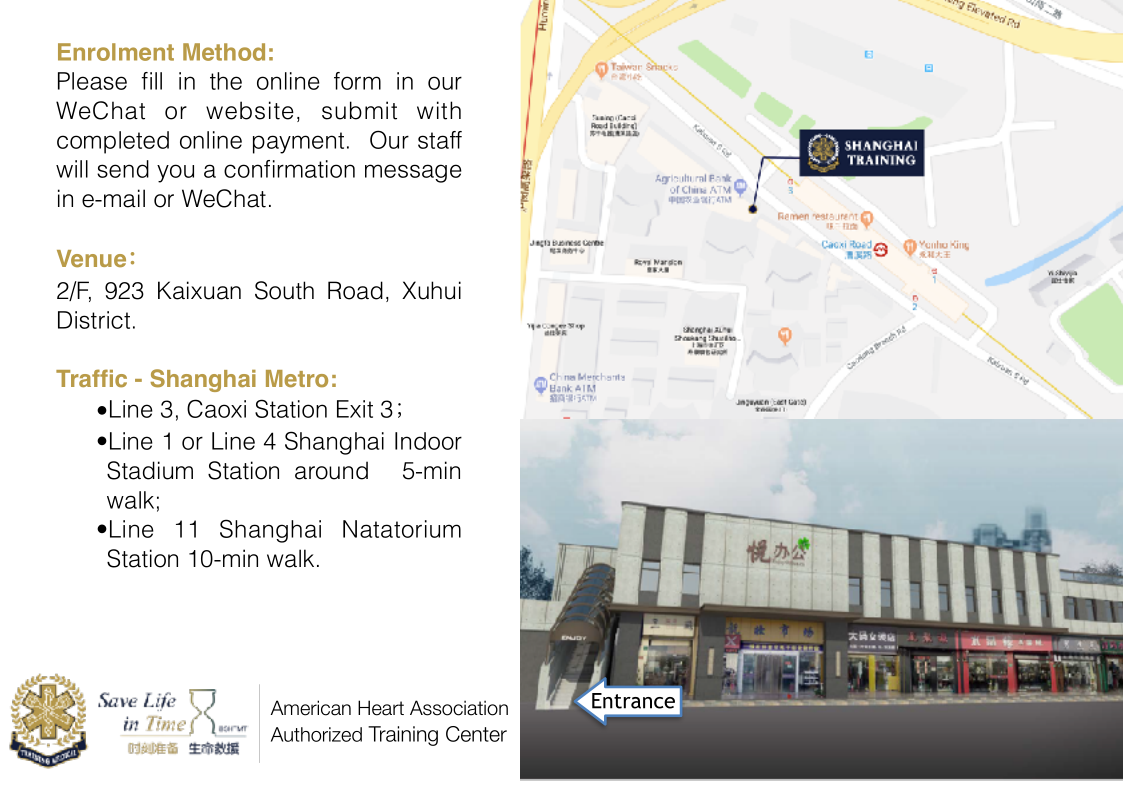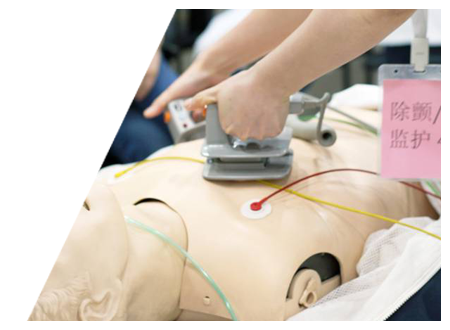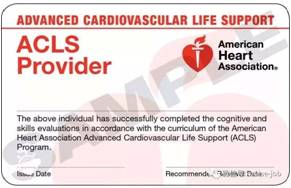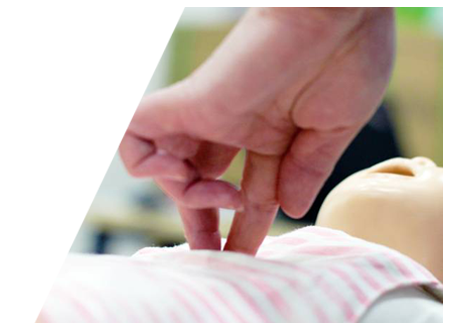American Heart Association(AHA)
Shanghai Training is accredited as
American Heart Association Authorized Training Center
American Heart Association is the oldest and largest worldwide voluntary organisation dedicated to fight against the heart disease and stroke. It was founded by six cardiologists in 1924. AHA is leading the CPR education and training worldwide. AHA helps people understand the importance of healthy lifestyle in providing scientific and evidence-based treatment guidelines for healthcare professionals and how to give high quality care to their patients. AHA provides anyone, eg, lawmakers, policymakers as well as the public the different levels of training programmes, as they advocate for changing to protect and improve the health of communities in the world.


